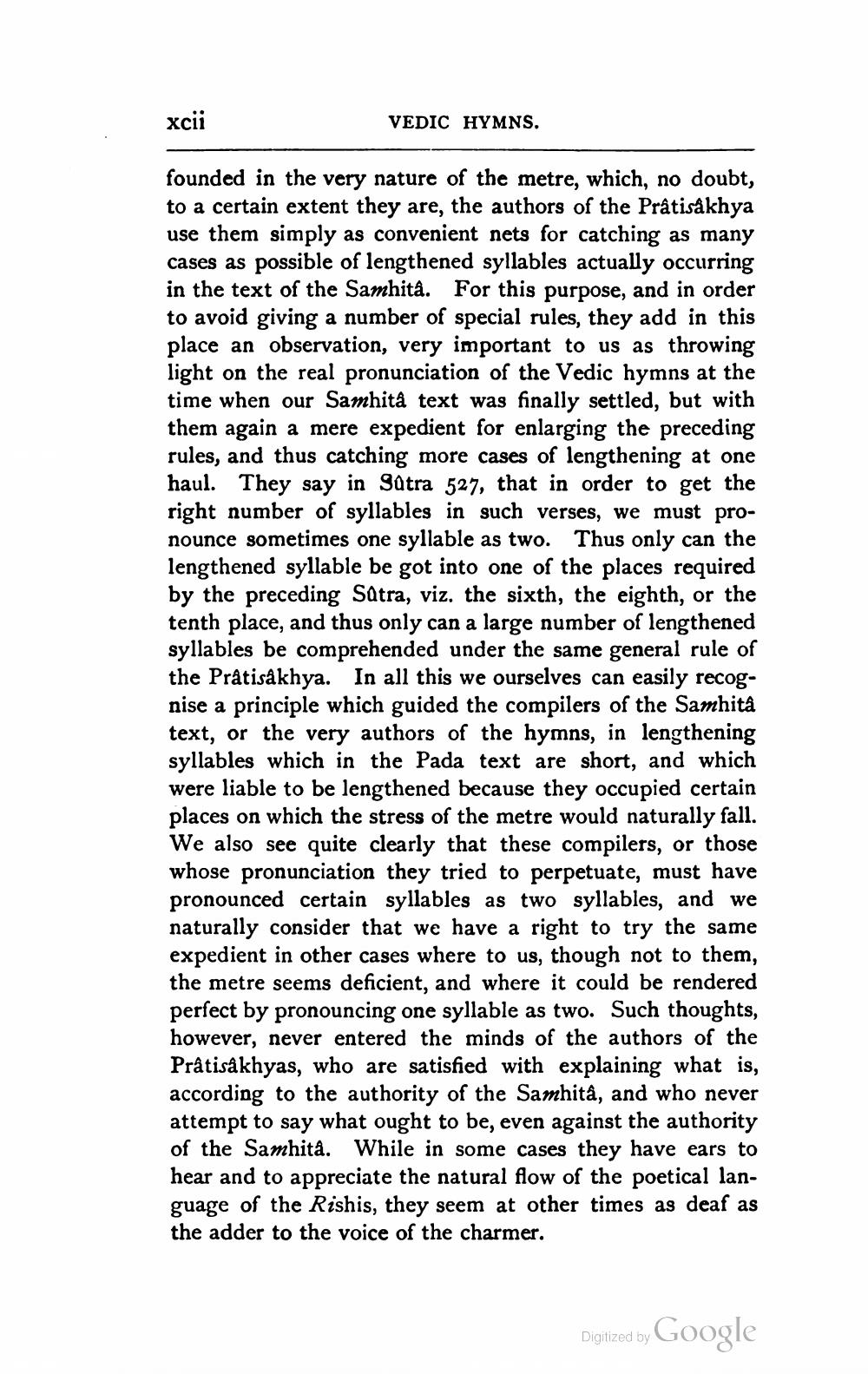________________
xcii
VEDIC HYMNS.
founded in the very nature of the metre, which, no doubt, to a certain extent they are, the authors of the Prâtisåkhya use them simply as convenient nets for catching as many cases as possible of lengthened syllables actually occurring in the text of the Samhità. For this purpose, and in order to avoid giving a number of special rules, they add in this place an observation, very important to us as throwing light on the real pronunciation of the Vedic hymns at the time when our Samhità text was finally settled, but with them again a mere expedient for enlarging the preceding rules, and thus catching more cases of lengthening at one haul. They say in Sutra 527, that in order to get the right number of syllables in such verses, we must pronounce sometimes one syllable as two. Thus only can the lengthened syllable be got into one of the places required by the preceding Satra, viz. the sixth, the eighth, or the tenth place, and thus only can a large number of lengthened syllables be comprehended under the same general rule of the Prátisakhya. In all this we ourselves can easily recognise a principle which guided the compilers of the Samhita text, or the very authors of the hymns, in lengthening syllables which in the Pada text are short, and which were liable to be lengthened because they occupied certain places on which the stress of the metre would naturally fall. We also see quite clearly that these compilers, or those whose pronunciation they tried to perpetuate, must have pronounced certain syllables as two syllables, and we naturally consider that we have a right to try the same expedient in other cases where to us, though not to them, the metre seems deficient, and where it could be rendered perfect by pronouncing one syllable as two. Such thoughts, however, never entered the minds of the authors of the Prâtisakhyas, who are satisfied with explaining what is, according to the authority of the Samhità, and who never attempt to say what ought to be, even against the authority of the Samhita. While in some cases they have ears to hear and to appreciate the natural flow of the poetical language of the Rishis, they seem at other times as deaf as the adder to the voice of the charmer.
Digized by Google




